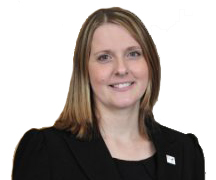Career Summary:
I’m an external relations professional with expertise in public affairs, campaigning, public relations and strategic communications. I have experience in a range of sectors including corporate, agency, charity and professional body/trade union. I have worked on consumer, FMCG and business-to-business issues but specialise in healthcare.
Academic/Professional Qualifications:
BA (Hons) Public Relations, Bournemouth University, 2001
How did you get into public affairs?
By accident. After university I got a job as an account executive at a PR agency expecting most of my work to be media relations but one of the accounts I was assigned to had a public affairs programme which I really enjoyed delivering. When the time came to move on, I decided to look for a public affairs role.
What does your current role entail on a day to day basis?
It’s really hard to say, every day is different. I could be developing a campaign strategy, advising senior colleagues and members on an issue, writing a policy paper, meeting with external stakeholders or politicians, attending an event or conference… All days will involve keeping abreast of the news agenda and what is going on in the four political administrations, meetings with colleagues and a lot of emails!
What are the main differences between working in policy and public affairs? How distinct a discipline can each be?
Both are distinct specialisms in their own right and require different skills, but they are intrinsically linked. Without a robust policy position there is nothing on which to base a public affairs campaign. I enjoy the fact that in my current role I am involved in the development of the policy, which gives me a deeper understanding of the issues on which to develop an effective campaign.
What do you enjoy about working in public affairs?
I am motivated by seeking to right injustices, such as people living with a health condition not being able to access the services they need. I enjoy getting to grips with an issue, understanding the policy drivers, developing a case for change and then communicating it to stakeholders and decision makers, finding different ways and opportunities to present the arguments. It is really rewarding when you have campaigned for something for sometimes several years and you finally win!
What’s the best piece of career advice you’ve been given?
Don’t drink the (free) wine at party conferences.
How important is being politically active to a career in policy and public affairs?
I don’t think being politically active is necessary to have a successful career in public affairs. I am not active in party politics, although I have lots of friends that are. The most important thing is to have an interest in politics and the political process; and if you are active in party politics, don’t wear it on your sleeve, professional neutrality is key to lasting functional relationships with all sides.
What value has being a CIPR Accredited Practitioner added to your career?
Being an accredited practitioner means you undertake a significant amount of CPD each year, and that has definitely added value as it means I devote time to learning, networking with colleagues and keeping up to date.
You’ve a degree in Public Relations: how relevant is degree subject for a public affairs career?
The Bournemouth University PR degree is really broad and covers the full range of communications disciplines, including public affairs. I regularly refer back to things I learned at university. I thoroughly enjoyed it, and the integral placement year means that the theory is fully grounded in practice. I would definitely recommend it to anyone interested in a career in public relations.
If you could timetravel back to your final year at University, what career advice would you give yourself?
People will keep telling you that you need a five year plan or a ten year plan. You don’t, just learn to identify opportunities when they arise and grab them with both hands.














